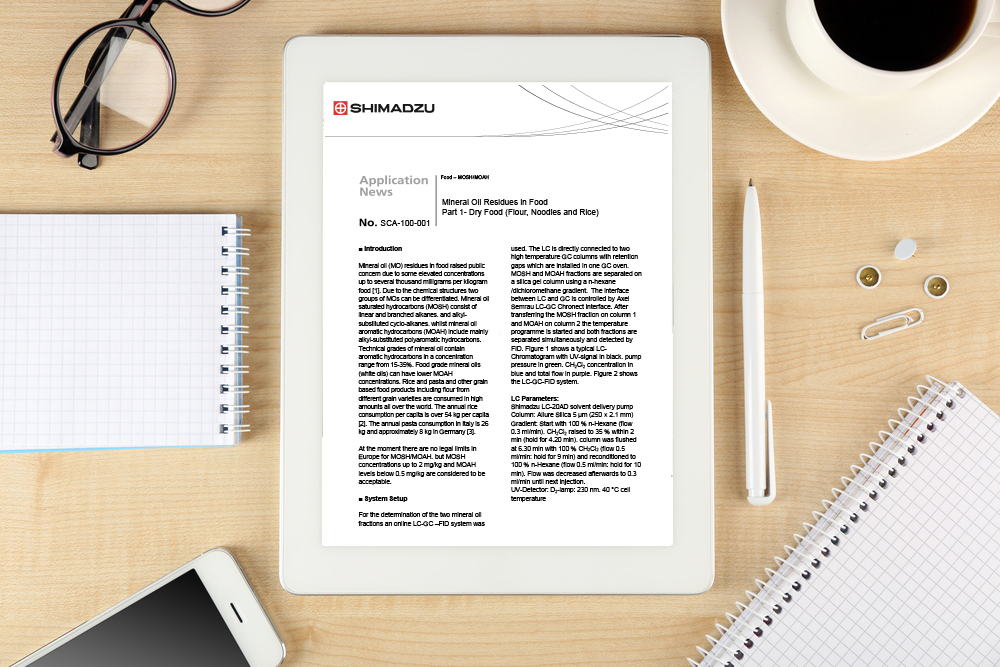App Note: Mineral oil residues in Food Part 1- dry food (flour, noodles and rice)
- Like
- Digg
- Del
- Tumblr
- VKontakte
- Buffer
- Love This
- Odnoklassniki
- Meneame
- Blogger
- Amazon
- Yahoo Mail
- Gmail
- AOL
- Newsvine
- HackerNews
- Evernote
- MySpace
- Mail.ru
- Viadeo
- Line
- Comments
- Yummly
- SMS
- Viber
- Telegram
- Subscribe
- Skype
- Facebook Messenger
- Kakao
- LiveJournal
- Yammer
- Edgar
- Fintel
- Mix
- Instapaper
- Copy Link
Posted: 13 June 2018 | Shimadzu | No comments yet
Mineral oil (MO) residues in food raised public concern due to some elevated concentrations up to several thousand milligrams per kilogram food…
Due to the chemical structures two groups of MOs can be differentiated. Mineral oil saturated hydrocarbons (MOSH) consist of linear and branched alkanes, and alkyl-substituted cyclo-alkanes, whilst mineral oil aromatic hydrocarbons (MOAH) include mainly alkyl-substituted polyaromatic hydrocarbons. Technical grades of mineral oil contain aromatic hydrocarbons in a concentration range from 15-35%. Food grade mineral oils (white oils) can have lower MOAH concentrations. Rice and pasta and other grain based food products including flour from different grain varieties are consumed in high amounts all over the world. The annual rice consumption per capita is over 54 kg per capita. The annual pasta consumption in Italy is 26 kg and approximately 8 kg in Germany.
At the moment there are no legal limits in Europe for MOSH/MOAH, but MOSH concentrations up to 2 mg/kg and MOAH levels below 0,5 mg/kg are considered to be acceptable.
The rest of this content is restricted - login or subscribe free to access


Why subscribe? Join our growing community of thousands of industry professionals and gain access to:
- bi-monthly issues in print and/or digital format
- case studies, whitepapers, webinars and industry-leading content
- breaking news and features
- our extensive online archive of thousands of articles and years of past issues
- ...And it's all free!
Click here to Subscribe today Login here
Related content from this organisation
Related topics
Fats & oils, Food Safety, Health & Nutrition, Regulation & Legislation










